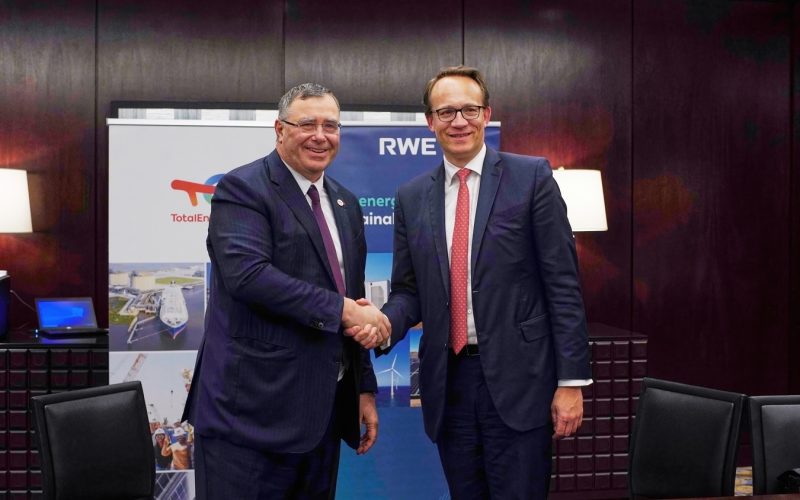TotalEnergies and RWE have signed a 15-year agreement for the supply of 30,000 metric tonnes of green hydrogen annually from 2030. The hydrogen will be produced at RWE’s 300-megawatt electrolysis plant in Lingen, Lower Saxony, and supplied to TotalEnergies’ refinery in Leuna, Saxony-Anhalt. This represents the largest contracted supply of climate-neutral hydrogen from an electrolyser in Germany to date.
The use of 30,000 metric tonnes of green hydrogen per year in refining processes is expected to reduce CO₂ emissions by 300,000 tonnes annually, equivalent to the emissions of approximately 140,000 cars. Hydrogen is already widely used in refineries, but it is primarily derived from fossil natural gas, resulting in high CO₂ emissions. The transition to renewable hydrogen aligns with Germany’s climate targets, which require fuel suppliers to cut greenhouse gas emissions by 25% by 2030.
Markus Krebber, CEO of RWE AG, emphasised the significance of the agreement, “We are proud to have secured the first long-term offtake agreement of this scale with TotalEnergies in Germany. This deal demonstrates that hydrogen can succeed with the right incentives and infrastructure in place.”
Patrick Pouyanné, Chairman and CEO of TotalEnergies, highlighted the role of partnerships in advancing decarbonisation efforts, “This long-term green hydrogen contract marks a major milestone in reducing emissions at our Leuna refinery. We look forward to further collaboration with RWE and support from German authorities in completing the hydrogen backbone to enable large-scale adoption of green hydrogen.”
RWE’s Lingen electrolysis plant, part of the GET H2 Nukleus project, is scheduled to begin operations by 2027. It will be powered exclusively by renewable energy, as mandated under EU regulations, which require electrolysers to match hydrogen production with real-time renewable electricity generation. To ensure a steady hydrogen supply, RWE will utilise storage capacity at the Gronau-Epe hydrogen storage facility, which is also set to be operational by 2027.
The agreement will be supported by Germany’s hydrogen core network, a 9,000-kilometre pipeline system connecting production hubs, such as Lingen, to industrial centres like Leuna. The network, developed through a combination of repurposed gas pipelines and new infrastructure, is set to be phased in between 2025 and 2032.
Stephan Weil, Prime Minister of Lower Saxony, underscored the importance of hydrogen in the region’s industrial transformation, “This contract is a key signal for the energy hub of Lingen and the broader hydrogen economy in Germany. The industrial-scale production and use of green hydrogen is critical for achieving climate neutrality, and Lower Saxony is leading the way.”
TotalEnergies requires large volumes of green hydrogen to decarbonise its European refineries and has tendered for 500,000 metric tonnes per year across the region. The agreement with RWE represents a step in that direction, strengthening Germany’s position in the development of a climate-neutral hydrogen economy.
Dr Reiner Haseloff, Minister President of Saxony-Anhalt, highlighted the strategic importance of green hydrogen for the chemical industry, “Saxony-Anhalt is a hub for both the chemical industry and renewable energy. Green hydrogen serves as a crucial link between the two, enabling industrial modernisation while maintaining our competitive edge.”















